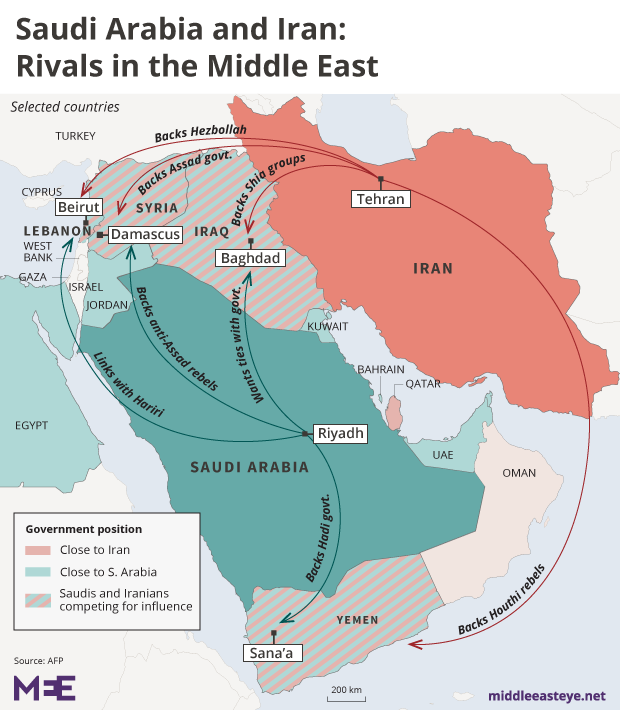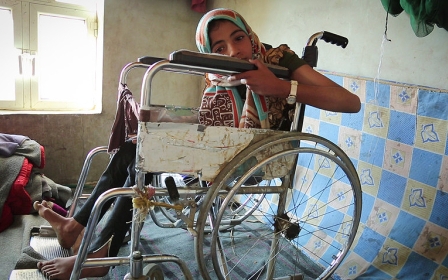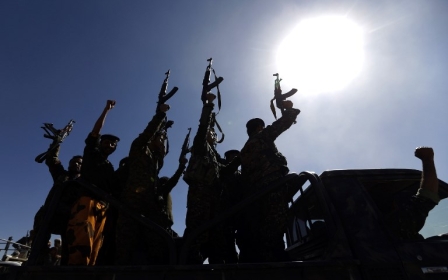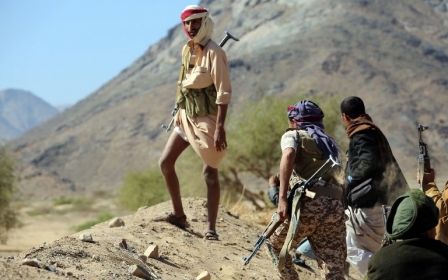Iran denies providing missiles to Yemen's Houthi rebels
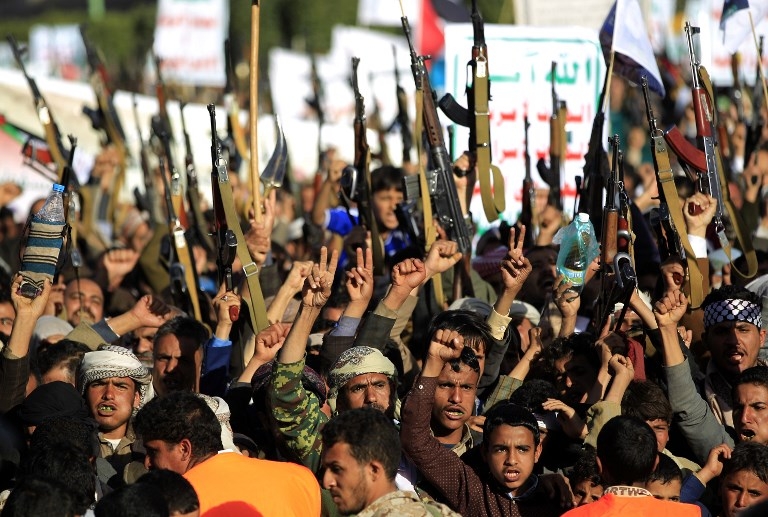
The Iranian government on Wednesday denied supplying weapons to Houthi rebels in Yemen in response to Saudi claims that a missile intercepted over Riyadh on Tuesday was "Iranian-manufactured".
Houthi rebels claimed the attack had targeted the Yamamah palace, the official residence of King Salman.
Saudi Arabia and the US accuse Iran of providing arms and other supplies to the Houthis, which Tehran has repeatedly denied.
"We have no arms link with Yemen," Bahram Ghasemi, a spokesman for the Iranian foreign ministry, told the ISNA news agency on Wednesday.
"The accusation that Iran gives weapons to various groups is rejected and we strongly deny it," he said.
"Yemen is in a blockade and such possibility does not exist anyway."
He said that weapons being used by rebels were "leftovers" from previous governments and that it was not even possible to send aid into the country because of the Saudi blockade of Yemen's ports.A spokesperson for the Saudi-led coalition on Tuesday said that Iranian-manufactured missiles posed a threat to regional and international security, while Nikki Haley, the US ambassador to the United Nations, said the attack bore the "hallmarks of previous attacks using Iranian-provided weapons".
Haley told the UN Security Council that Washington could seek to impose sanctions against Iran and said Tuesday's missile launch should be a "flashing red siren for this council".
"We could explore sanctions on Iran in response to clear its violations of the Yemen arms embargo," said Haley.
The US State Department later issued a statement that said Washington was "deeply disturbed by aggressive Houthi actions supported by Iran's provision of advanced weapons, which threaten regional security and prolong the Yemen conflict".
The US Defense Department added it was working "to fully understand what took place and to ensure that our Saudi partners have the resources they need to defend their territory".
The US has supplied weapons to the Saudi-led coalition which has been fighting the Houthis since March 2015, 1,000 days ago on Wednesday, and has launched thousands of devastating air strikes targeting Houthi-controlled areas.
Tuesday's missile was the third fired from Yemen in recent weeks, after an earlier rocket was brought down near King Khaled airport on the northern outskirts of the capital on 4 November.
On 30 November, a ballistic missile was shot down near the southwestern city of Khamis Mushait.
Houthi rebel chief Abdulmalik al-Houthi in a speech on Tuesday indicated that the missile attack was carried out in retaliation for air strikes launched by the coalition.
"In exchange for a thousand days of bombardment with internationally banned weapons, there has been a thousand days of steadfastness in which our people have demonstrated that their resolve will not be broken," he said.
"Today our people reached the heart of Riyadh – the government palace – with a ballistic missile."
Witnesses in the Saudi capital on Tuesday said they had heard an explosion and posted videos on social media showing a cloud of smoke in the air.
Yemen has been gripped by a devastating war since the intervention by the Saudi-led coalition after the Houthi rebels took control of Sanaa, the capital, and forced Yemeni President Abd Rabbuh Hadi into exile.
The Houthis remain in control of Sanaa, the Yemeni capital and the port city of Hodeidah.
The conflict has led to one of the world’s worst humanitarian crises and killed at least 10,000 people. Saudi Arabia has also imposed a blockade of the country which has been condemned by aid organisations.
New MEE newsletter: Jerusalem Dispatch
Sign up to get the latest insights and analysis on Israel-Palestine, alongside Turkey Unpacked and other MEE newsletters
Middle East Eye delivers independent and unrivalled coverage and analysis of the Middle East, North Africa and beyond. To learn more about republishing this content and the associated fees, please fill out this form. More about MEE can be found here.


